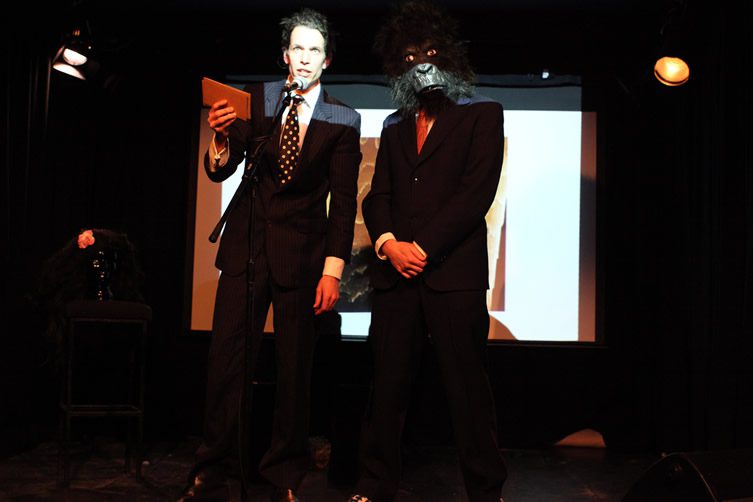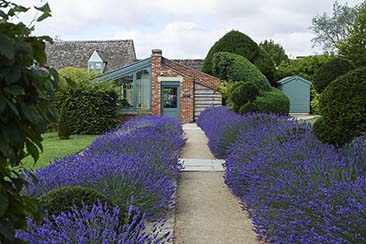The word count. The faceless dictator and yard stick to the writing masses, whether they be churning out meandering pontifications to fatten their copy up with word-water retention or fine-combing their prose to pick out each and every letter and louse deemed surplus to requirements. Preacher, mother, secret lover, the word count can be either a friendly, beckoning guide to the writer or a ruthless, barking tyrant and will often shape the nature of the reader’s experience.
In their new book, House Paint and Other Stories, Felstead and Waddell have put together 100 stories all made up of 100 words. That’s right, one hundred. Two lots of fifty. Five scores. A feat made all the more temple-grinding by the authors’ dogged dedication to the character count. Hell, even the forward and acknowledgements clock in at 100 words a piece. As far as I can work out (see below), Felstead and Waddell have been up to no good since 2008. It’s the culmination of many a night out drinking together, trying to hash these ragtag writings together, held together by a perfectly arbitrary desire: 100 words; 100 stories.
So, the 100-barrel gun spurs the two writers into producing these quick-fire pockets of whimsical prose, each shot counting toward the centennial and altogether autistic arc-ette. The brevity of the tales not only whips lean the garrulous tradition of normal storytelling, but goes one step further by depriving us – the reader – of any context. Thrust directly into the mad mechanisations of two dubious imaginations, the 100 word construct doesn’t allow the reader to invest in either narrative or character, thus making way for a peculiarly disconnected humour, constantly refreshed from tale to tale. Sort of like eating different flavours of a sweet you really like without ever getting full. Instant gratification galore.
Anyway, here they are, in their own 100 words – if you dare.
House Paint and Other Stories, with Forward by Colin Grant, and designed by Studio Makgill’s Charlie de Grussa, is out now.
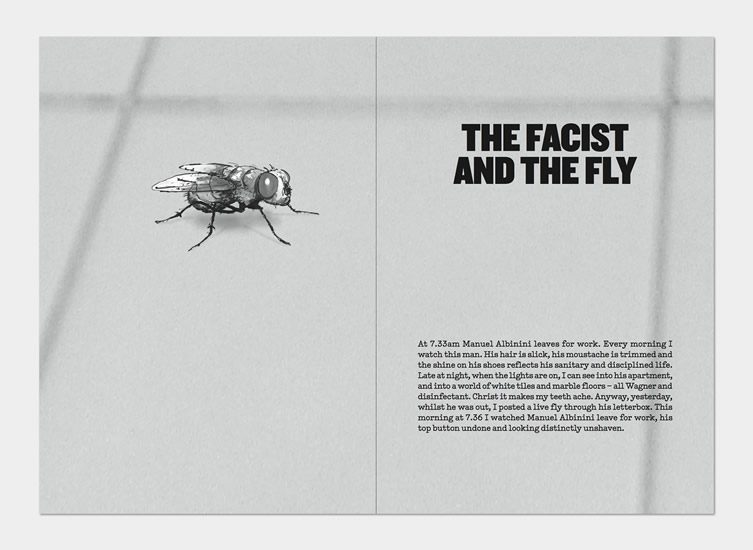
100 stories made up of 100 words. What possessed you two to put yourselves through that?
Waddell: Laziness. And an excuse to get down the pub. Plus, I needed to get Felstead doing something quicker. He’s a painter – and spends much time chin rubbing over his work.
Felstead: And we are completely fickle. Heaven forbid that we could commit to any particular narrative.
Was this a project you sort of dipped in and out of over time, or did you just sit down and churn them out?
Waddell: Dipped in and out. Again, we’re lazy. At first we met in the pub to write. Then we
met in the pub to write and drink. Then we met in the pub to drink.
Felstead: It’s taken a while. Four or five years of writing – and drinking.
The stories seemingly follow no thread (apart from the fact they’re all 100 words). How do they come to you?
Waddell: Good spot. It’s chaos.
Felstead: Usually any inspiration comes there and then. We just sit and look at what’s around us – pictures, objects, signs. Eventually we tend to use up the surroundings. Then we’ll meet in a different pub.
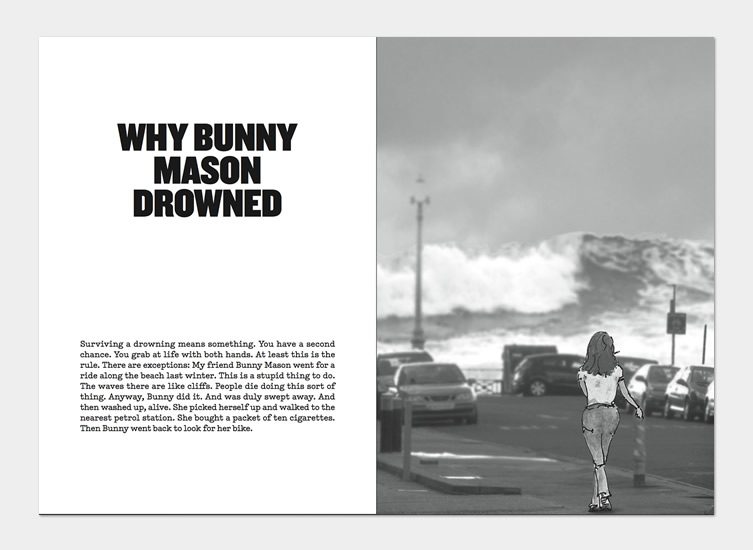
Do any stand out that either of you are particularly proud/fond of? Any that you really agonised over?
Waddell: I am pleased with everything I wrote. I agonised over nothing.
Felstead: I have agonised over everything that Waddell has written.
Did either of you have to swoop in and help the other when they couldn’t make the word count fit?
Waddell: Word counts are Felstead’s territory. So is the truth. I was just going to put a
disclaimer at the beginning of the book. Felstead insisted we make sure they were
all 100 words long because that’s how long we said each story was. Huh?!
Felstead: It’s true. Waddell has nothing to do with word counts.
The illustrations are pretty cool. What was the process with making them? Did you take photos specifically for them or just sort of mesh together existing shots to go along with the stories?
Waddell: They’re a piece of cake. 5 minute jobs. Flash art. I think Felstead outsources them.
Felstead: I do not. Sometimes they are existing shots and sometimes they are taken specifically, but never that far from home. We started off posting a weekly story and illustration on our website and the use of photos just started off as a necessity when working against time.
Waddell: Did Felstead just plug our website?
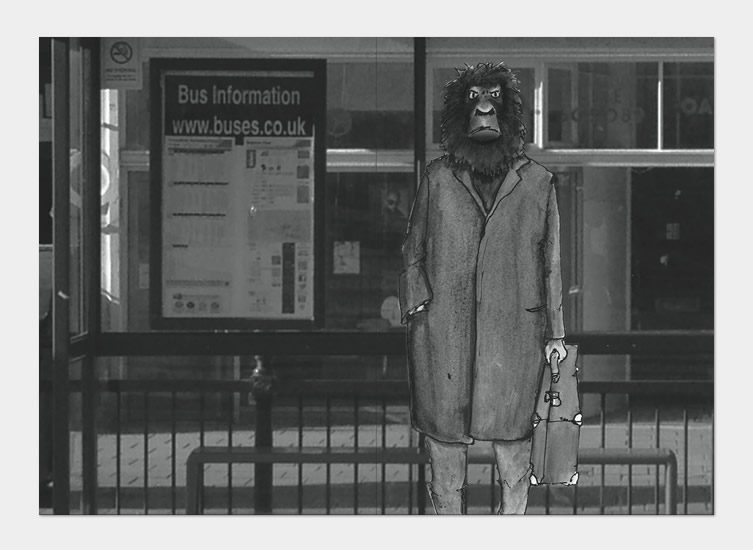
Gorilla
I am a gorilla. I am intelligent and family-orientated and strong. My back is beginning to turn silver. My coat is warm. My teeth are large. I beat my chest whenever I feel like it. I am a strict vegetarian. I like mountains. I try not to climb a tree. I can smell the possibility of sex long before it appears. Keep me in a cage and I will forget myself. I don’t mind you looking at me. I don’t mind you being around me. I do mind you talking to me. Do not touch me. I am a gorilla.
What would you say each of your own respective roles were when creating the book?
Waddell: I did everything.
Felstead: And I did everything that he hadn’t done.
Describe each other’s role.
Waddell: Felstead tells me what to do. He keeps me in a cupboard. I have to dress up and stuff. This is the first time I’ve been able to tell my side of the story.
Felstead: I have tried telling Waddell what to do. It might be better to keep him in a cupboard
Are any of the stories autobiographical at all? “The Penis Game”, for example?
Waddell: I’m circumcised. Storing marbles in my penis is nigh on impossible. And crazy as it sounds, I’ve never seen Felstead’s, so I can’t speak for him. It wouldn’t surprise me though. He didn’t bat an eyelid at that story. As for the others, most are aspects of Felstead’s many deeply troubled selves. I don’t think I’m in there at all – though I notice that his portrayal of the Spider Fight character bears a powerful resemblance to me. I’m not surprised. Uncontrollable levels of vindictiveness are, sadly, part of his condition.
Felstead: Inspiration comes from everywhere, even Waddell’s childhood pastimes.
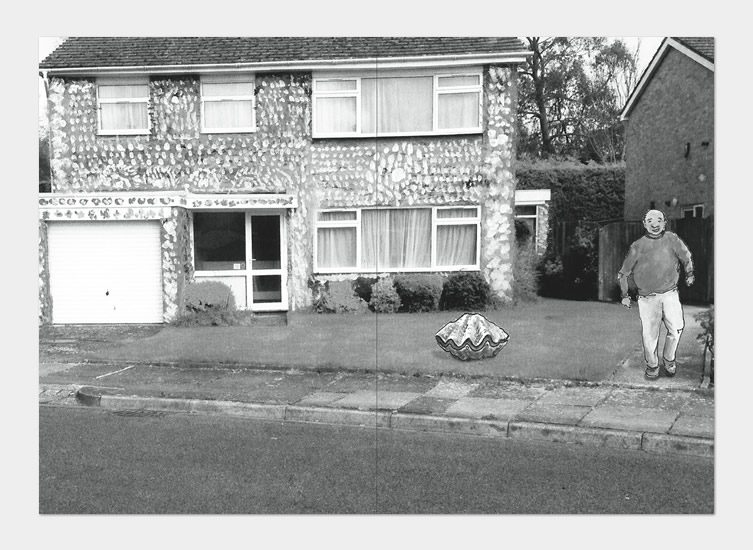
A Word in Your Shell Like
Jonathan Jones covered his house with shells. He went to the beach and found each one himself. Then he took it home and set it in a tiny square of concrete. He did this every weekend until it was finished. It took him a very long time. When it was sunny, people came and looked at the house. They pointed and took photographs. When this happened, Mrs. Jones would stay inside trying to keep away from the windows. But Jonathan ran straight down the garden path. ‘Ere, a word in your shell like, he would say. And everyone would laugh.
A lot of the stories have a [Dr.] Seussian air about them. Did he or any other writer/artist/babbling man on the street influence either of you?
Waddell: No. We are without predecessors. We are originals. We come from outer space.
Felstead: Nothing is original. We started out just trying to make each other laugh. Then Waddell went off searching for an audience.
The stories are all very poetic… I’d even go as far as calling them profound. How many of them had a pre-meditated narrative and which were just stream of conscious type tales?
Waddell: That’s one for Felstead. I don’t think about this sort of stuff.
Felstead: There is nothing profound about Waddell.
Looking through the photos, Waddell often plays the more effeminate role in the performances… What’s with that?
Waddell: I resent that. My female characters are males playing males playing female males.
Felstead: Waddell always chooses what characters to play first.
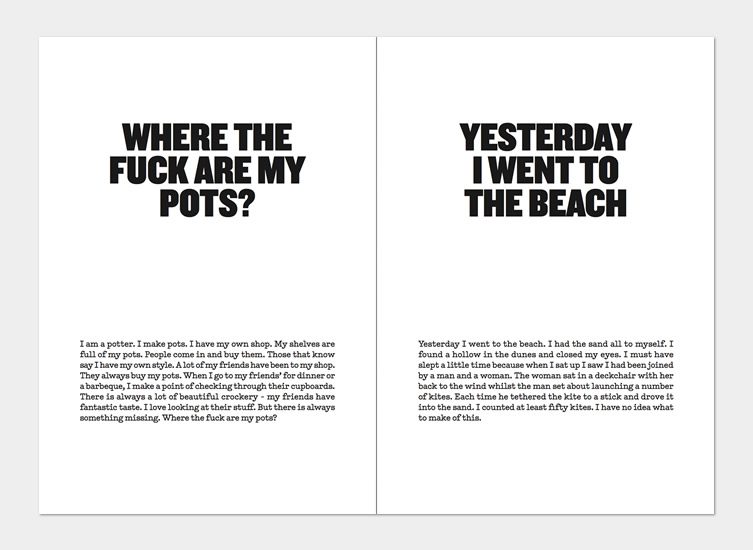
Most of the stories are very abstract. Are there any that just don’t translate to the stage? How do you go about tackling these?
Waddell: More hard questions. Ask Felstead about this.
Felstead: Some stories definitely don’t translate to the stage, but it’s often difficult to spot these until it’s too late.
Were any written with the performances in mind, or is the book a stand-alone entity?
Waddell: The book is actually composed of an a priori mathematical truth: 100 words times 100 stories divided by 100 minutes of performing minus a Forward that can be read in 100
seconds equals House Paint & Other Stories. It unlocks the key to the universe. We
stumbled across it in the pub.
Felstead: What he says, I think.
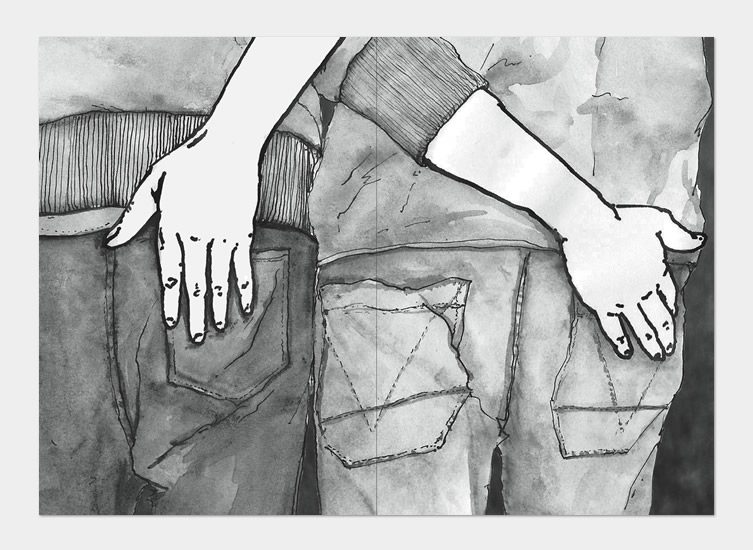
Every Time We Say Goodbye
Every time we say goodbye, my friend and I do a special handshake. We do a high five, then a side five, a knuckle touch and a heel click. My friend and I have had our special handshake since school, and even though he works in a bank, and I’ve been in the army, and he’s married, and I’ve lived in places like Naples and the Fiji Islands, we still do it. Only now my friend has added a bum stroke to the special handshake. It’s a good move. We do it a lot, even when we’re not saying goodbye.
Was this a one-off or will you be doing more stuff together?
Waddell: Both. We are going to put the same book out in many different editions – without
any changes.
Felstead: Apart from the Spot the Difference Special Anniversary Edition.
Waddell: Which will be limited, and therefore cost, what…double?
Felstead: Triple.
Waddell: Yup. Triple.
***
